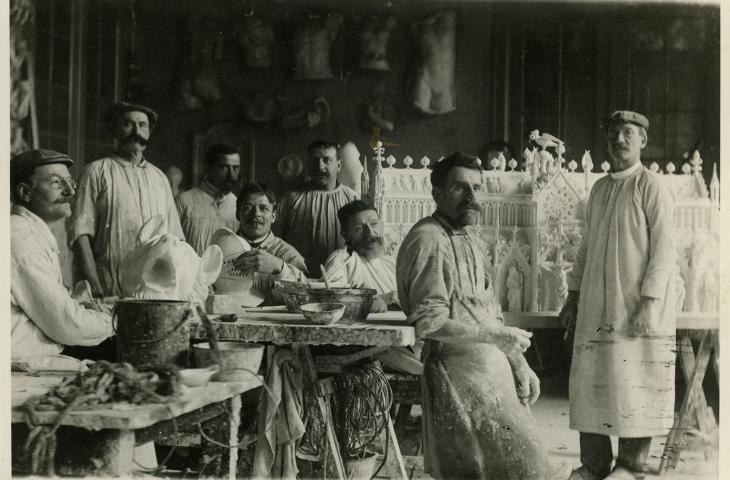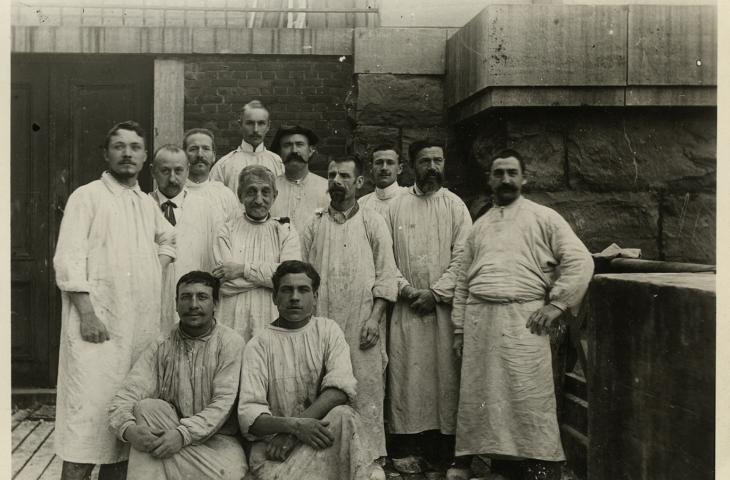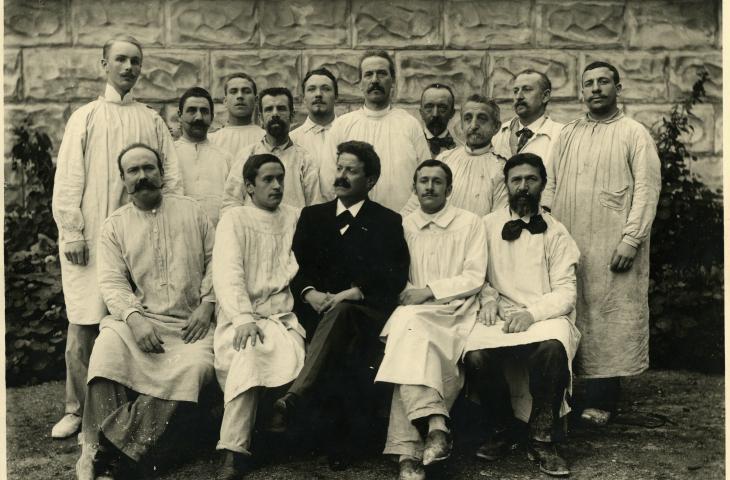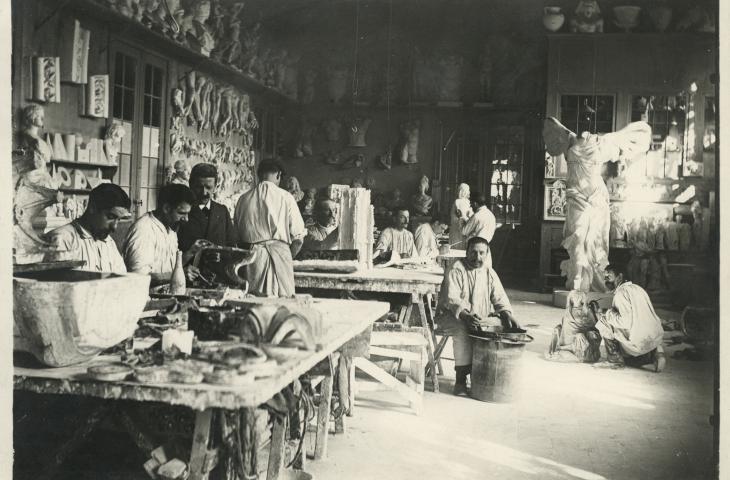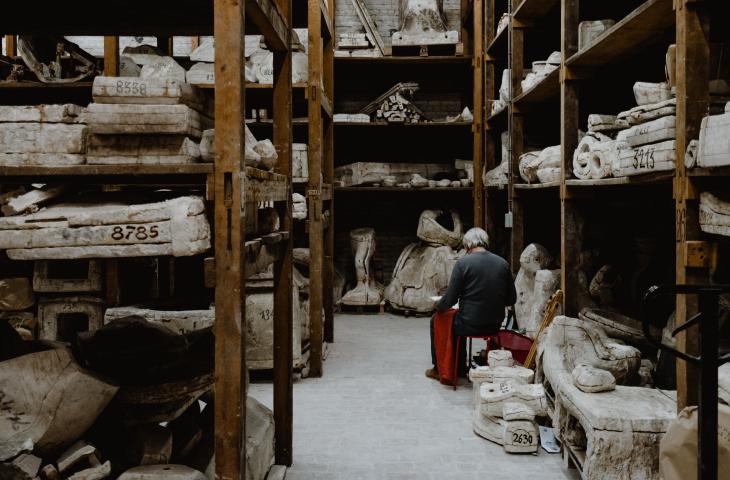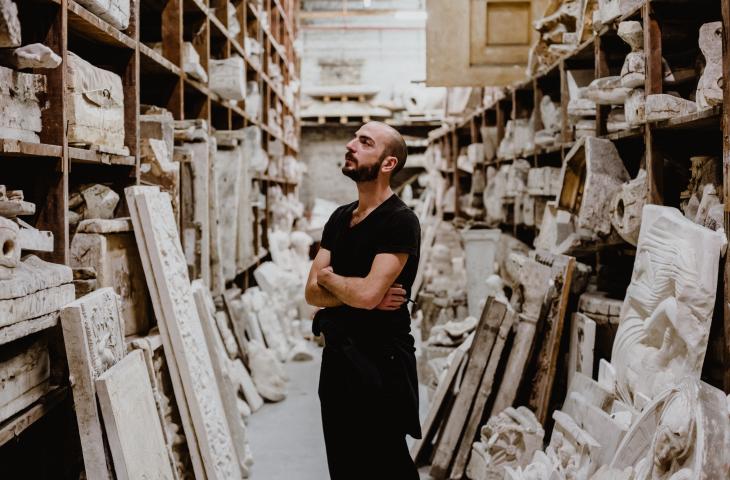Plaster cast workshop

Created in the 19th century under Leopold II, the plaster cast workshop preserves and operates a collection of more than 5,000 molds made from works of art dating from prehistory to the 18th century. For 130 years, new plaster casts have been continuously produced. Specialized craftsmen work on each piece individually, using traditional molding and patina techniques.
A unique 19th-century legacy
The story begins in the 19th century, when several European countries agreed to exchange plaster casts of their masterpieces. The newly founded Belgian state also decided to participate actively for educational purposes by buying, selling, and exchanging casts.
To help circulate European heritage as widely as possible, Belgium opened its own plaster cast workshop in Brussels’ Parc du Cinquantenaire, where eventually more than 5,000 casts and molds were created. Until the 1930s, museum visitors could admire the casts in a monumental display. Afterwards, partly due to changing museological...
The story begins in the 19th century, when several European countries agreed to exchange plaster casts of their masterpieces. The newly founded Belgian state also decided to participate actively for educational purposes by buying, selling, and exchanging casts.
To help circulate European heritage as widely as possible, Belgium opened its own plaster cast workshop in Brussels’ Parc du Cinquantenaire, where eventually more than 5,000 casts and molds were created. Until the 1930s, museum visitors could admire the casts in a monumental display. Afterwards, partly due to changing museological views, the collection was moved and stored out of sight. The workshop, however, continued to operate!
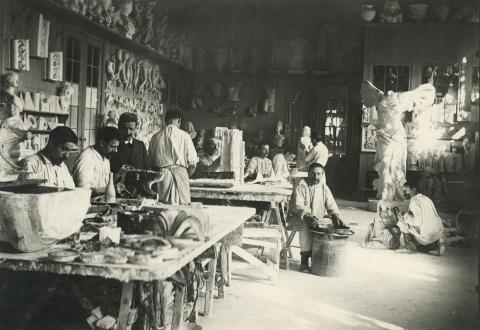
130 years experience
For 130 years, master cast makers have been producing faithful copies of the most famous sculptures in European history, based on 19th-century molds. Forget 3D printing - our craftsmen use only traditional techniques. The pieces are made to order for other museums, academies, schools, companies, and individuals both in Belgium and abroad. In this picture-perfect setting, you will come face to face with the most famous sculptures from antiquity, the Middle Ages, and the Renaissance!
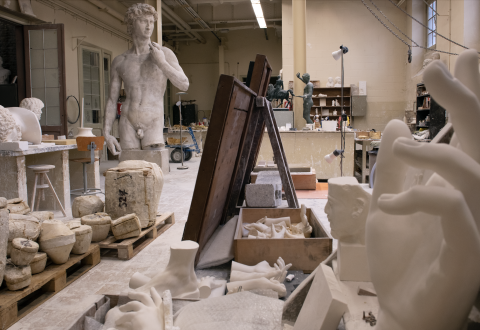
Order a plaster cast
By offering casts for sale, the workshop makes art accessible to schools, academies, scientific and commercial institutions, or enthusiasts in Belgium and abroad. A few small casts are in stock, but most reproductions - busts, full-length statues, reliefs, and other sculptures - must be ordered. You can place an order on site or by email. Discover the rich selection online or consult the catalogue on site!
Please note: The waiting time for a new order can be several months, depending on the type of piece. Don’t hesitate to contact us for an exact timeline. Thank you for your patience.
E...
By offering casts for sale, the workshop makes art accessible to schools, academies, scientific and commercial institutions, or enthusiasts in Belgium and abroad. A few small casts are in stock, but most reproductions - busts, full-length statues, reliefs, and other sculptures - must be ordered. You can place an order on site or by email. Discover the rich selection online or consult the catalogue on site!
Please note: The waiting time for a new order can be several months, depending on the type of piece. Don’t hesitate to contact us for an exact timeline. Thank you for your patience.
E: moulages@kmkg-mrah.be
Ph: (0)2 741 72 94 - (0)2 741 72 93
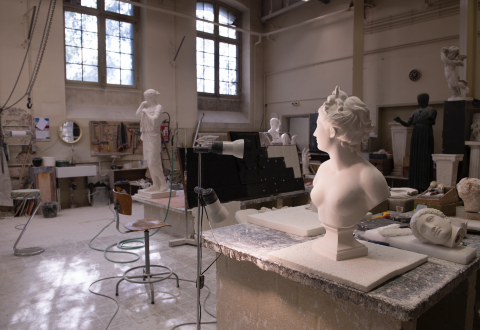
Visit us
The plaster cast workshop is free to individual visitors without a guide on Thursdays from 13:30 to 16:00 (except on Ascension Day, November 2 and 15, holidays falling on a Thursday, and the week between Christmas and New Year). In addition, the Art & History Museum organizes monthly guided tours for individuals.
The Museum also offers guided tours for groups on Tuesdays and Thursdays, by reservation only. Capacity is limited, so please book your visit well in advance.
A peek inside the plaster cast workshop
Ever wondered how perfect replicas of masterpieces from major European museums are made? Follow us for an exclusive tour of the casting workshop!
Behind the scenes of the plaster cast workshop
This RTBF report highlights the richness of the collections as well as the work of the employees of the plaster cast workshop.
